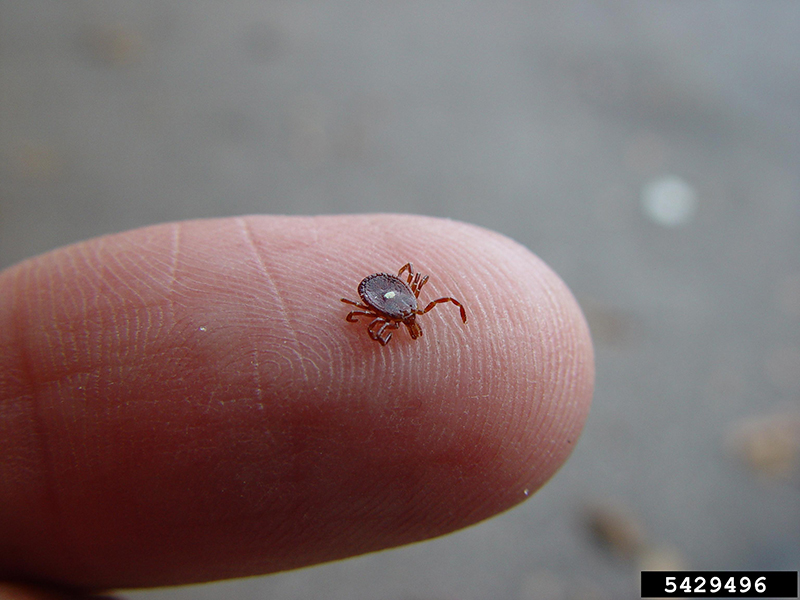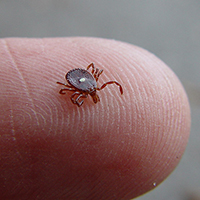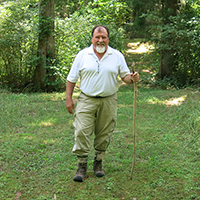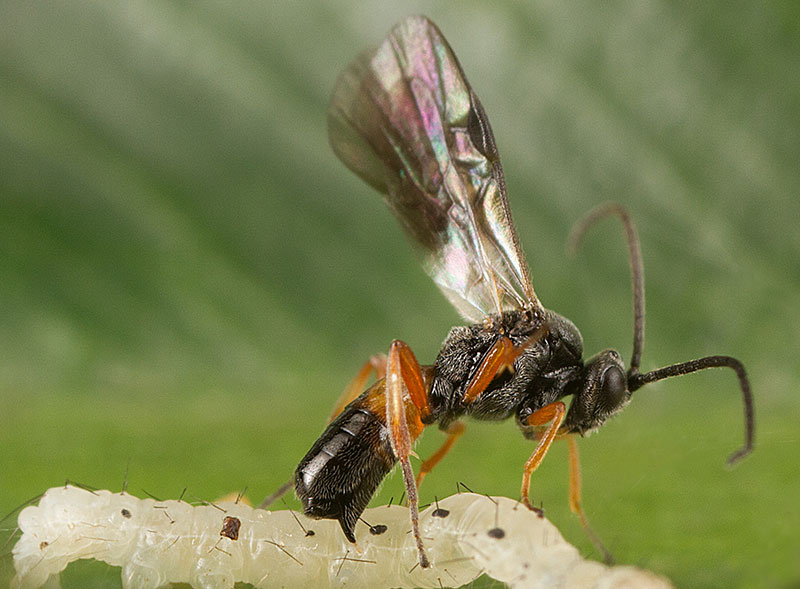In Georgia, the risk of serious illness from a tick bite is low, but there’s no reason to give them a free meal.
Long pants, tall socks and a little common sense will go a long way in helping Georgians avoid ticks this summer, according to Elmer Gray, a public health entomologist with University of Georgia Cooperative Extension.
“From Easter on, our most common ticks are active,” Gray said. “Whenever you walk into grass that touches your legs, you need to take precautions or you could come home with ticks. You don’t have to be in the woods to pick them up.”
By Easter, Georgia’s lone star tick — the state’s most common tick — has started “questing,” an entomology term for the tick’s search for a blood meal. They crawl up to the top of a tall blade of grass and wait to hitch a ride on unsuspecting hikers or gardeners, or pets and other animals. Then they climb their victim until they find a vulnerable, warm spot and dig in.
No matter what part of the body becomes the tick’s dining destination, there’s an almost 100 percent chance that it started its assault on the victim’s legs, Gray said.
The best defense against ticks is to stay out of tall grass or brush. Stay on marked trails or sidewalks and avoid overgrown areas.
Cut off ticks’ access when walking through the woods or working in overgrown areas by wearing long pants that are tucked into boots or socks and tucking in shirts. This may not be the most comfortable or stylish look, but it will keep ticks at bay, Gray said.
He also recommends using insect repellents with DEET to provide an extra layer of protection for casual outdoor activities.
Those spending a lot of time in brushy areas or in the woods this summer should invest in a permethrin treatment for their work, hunting or camping pants. These products are available in the camping section of sporting goods and big-box stores.
The permethrin based products are only approved for application to clothing and are very effective in repelling all of our most common pests including ticks, chiggers and mosquitoes. Gray urges those using these products to follow the instructions that come on their product's label.
As always, it’s important to check for ticks after working or playing in a tick habitat. The only safe way to remove ticks is to use tweezers or your fingers to grab the tick as close to the skin as possible and carefully pull it out. People should wash the bite site, and their hands, after removing any type of tick.
Essential oils or other tick-irritating substances may force the tick to move, but not before the distressed tick expels additional saliva and possibly pathogens into its host’s bloodstream, increasing the chance of tick-borne disease or infection.
Ticks carrying lyme disease — the black-legged or deer tick in the eastern United States — are in Georgia, but they are not as common as the other species and the adults are most active in the fall. More common are the American dog ticks that can carry the bacteria that causes Rocky Mountain spotted fever. Georgia sees about 75 cases of this illness each year.
All tick bites can cause welts and itching that can last up to 10 to 14 days, but Gray urges Georgians to visit the doctor if they experience fever or extreme headaches or if they develop a localized rash that’s larger than a dime. Tick-connected headaches or fever will emerge five to seven days after tick contact.
“We are very fortunate that we don’t have a lot of disease-carrying ticks in Georgia,” Gray said. “But nothing good comes from letting ticks bite us. We just don’t want ticks on us if we can avoid it … We need to be tick-smart.”
One emerging concern surrounding ticks in Georgia is the connection between lone star tick bites and the development of an allergy to mammalian protein, which includes beef and pork. In some instances, the saliva of the lone star tick triggers an immune reaction that leads to an allergy to mammalian meat.
It’s not an epidemic, Gray said, but there is a connection between the state’s most common tick and the allergy. That’s just another very good reason to avoid ticks this summer.
For more information about how to protect yourself and your family from ticks, visit tinyurl.com/UGAExtensionTickProtection or search “ticks” at www.extension.uga.edu.









